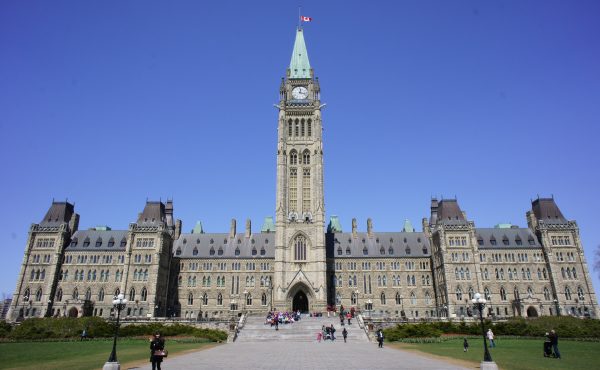
We in Toronto are blessed with an electoral system that is the envy of many people worldwide, who cannot vote at all, or who do so in an environment that is far from free and democratic. Still, one could hardly call our first-past-the-post format perfect.
Less than 40% of eligible voters turned out in the 2006 Toronto municipal elections. In the same election, 14 candidates won their seats in wards where most of the voters did not choose them. New faces are rare, and rarer still are councillors who represent the gender balance and ethnic diversity of this city.
As election season hits high gear, there is a growing chorus of Torontonians who are speaking up about the ways that our electoral system is broken and how it could be re-invigorated. These individuals have started a vital discussion and pushed reform onto the mainstream agenda. While the changes they propose will not alter the ballot on October 25, the reformers have tapped into a hunger for change in this city; an appetite they expect will grow long after the ballots have been counted.
Feeding this hunger has been the greatest success of the Better Ballots initiative, says Rob Newman, its project lead. The group has facilitated a non-partisan discussion about voting reform options that is spurring on a new generation of civic activists.
Newman describes the Better Ballot’s approach: “We’re not picking winners, we’re opening up the discussion. Any one of these suggestions could be part of the solution.”
At a series of town hall meetings and a mayoral candidates forum this spring, Better Ballots presented 14 options successfully implemented in other jurisdictions including weekend voting (Montreal), municipal parties (Vancouver), online and phone voting (Markham), proportional representation (Cambridge, Mass.), lowering the voting age (Brazil) and ranked ballots (San Francisco).
“People understand the options we’re proposing,” says Newman. “Over 300 people said they wanted to volunteer to see these changes through.”
While the mayoral forum raised the issue of electoral reform to the next level by giving these options legitimacy, Newman sees Better Ballot’s grassroots approach as its most effective strategy. “Voting is only half of democracy; discussing, debating, and participating is the other.”
To facilitate this action, Better Ballots is now serving as a clearing house to connect like-minded people interested in various methods of electoral reform. Providing capacity-building support to burgeoning groups and new energy to existing organizations, Better Ballots is helping to create a movement.
Two-year-old iVote Toronto is one organization who has benefited from the energy of projects like Better Ballots. New volunteers are getting fired up about iVote’s message: Toronto can be a more inclusive and representative city by extending voting eligibility to permanent residents.
Over 200,000 permanent resident non-citizens live in Toronto, pay taxes, and send their children to school but cannot vote since landed immigrants must wait three years before they are eligible for Canadian citizenship.
Campaign Coordinator Leo Zuniga sees this waiting period as a lost opportunity to offer newcomers a sense of belonging and get them involved in their city. “Citizenship is a journey that begins within neighbourhoods,” says Zuniga. “Sadly, neighbourhoods with a high proportion of newcomers are disproportionately low voting.”
Immigration has been a contentious issue in this year’s campaign, yet voting for non-citizens is the norm in jurisdictions in over 30 countries including the United States, Great Britain and Australia. iVote Toronto is working hard to build its coalition of supporters by engaging as many people as possible. It has found support with over 17 70 newcomer agencies including the Thorncliffe Neighbourhood Office and Central Neighbourhood House, as well as mayoral candidates Joe Pantalone and Rocco Achampong.
While Zuniga does not anticipate tangible changes to this year’s voter list, he is looking forward to 2014 when he hopes the provincial government will step in to make changes to the Municipal Elections Act.
Change is slow in coming. But the number of people fired up about engaging with and improving our electoral system is a hopeful sign of things to come.
Photo by John Manoogian III



4 comments
Oh good grief. Why would it be “all about voter turnout”? Pollsters have long figured out how to gauge public opinion by asking a random sample of 1000 or less Canadians. Why would it make any difference to outcome if 900,000 Torontonians voted instead of 600,000? Of course voting is a sign of civic engagement, and civic engagement matters, but I can think of a lot more constructive ways to be engaged than lining up in a school gym every four years. Low participation is not disenfranchising the poor, by the way. In Frances Nunziata’s ward, where average household income is $52,000, turnout was 40% last time. In Kyle Rae’s ward — where average income is $110,000! — turnout was 38%.
Disenfranchising immigrants matters in countries where immigrants find it hard to become citizens. But the vast majority of immigrants to Canada become citizens very, very fast. I lived 5 years in the US and never bothered to learn anything about local politics. How would it have made the polity or my life better if I had cast a vote for mayor?
Voting for non-citizens is hardly the norm in the United States and Australia.
It takes 3 years for a permanent resident to qualify for Canadian citizenship application and 17-19 months to process the application. That’s 4 1/2 years from the moment one arrives in Canada to citizenship status. That means that a typical immigrant on a citizenship track will miss one municipal election. Around 10% could miss two. Given that, I see no need to grant voting rights to all residents.
Michael S: your analogy to polls doesn’t really hold water. First off, polls are not considered terribly accurate. Second, pollster’s strive for a balanced sample. If they find out their sample is heavily skewed (say, 65% female), they’ll try to adjust for that one way or another. The reason we want more people to vote is that there is every reason to believe the sample of the population who votes is not representative of the population at large. Or at least, that’s one reason.
Voting by non-citizens cheapens citizenship.
People have the right to not care and not vote at this time for all sorts of reasons and there is nothing that can be done about it. Many people just dont want to be engaged. In the case of newcomers they may be too busy with two jobs and other concerns to get engaged; having nothing to do with whether it is legal or not to vote.
Making voting the law is the only way to maximize voting and I am curious why people who are concerned about under voting never mention it. It would solve the problem in one swoop.
Who determines by the way what is an acceptable level of voter turnout? It might be better to have40% who are engaged than 80% who may or may not all be engaged. Sometimes I think this argument is about quantity rather than quality.